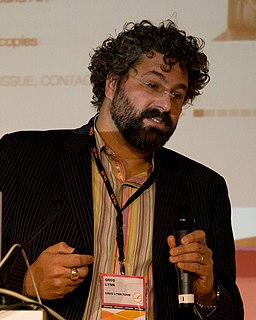A Quote by Tahl Raz
The process of unleashing worms on organic waste such as food scraps and grass clippings is known as 'vermicomposting.' Amateur horticulturists and hippies have been doing it on a small scale for decades.
Related Quotes
...there's no such thing as sustainability. There are just levels of it. It's a process, not a real goal. All you can do is work toward it. There's no such thing as any sustainable economy. The only thing I know that's even close to sustainable economic activity would be organic farming on a very small scale or hunting and gathering on a very small scale. And manufacturing, you end up with way more waste than you end up with finished product. It's totally unsustainable. It's just the way it is.
To go back to architecture, what's organic about architecture as a field, unlike product design, is this whole issue of holism and of monumentality is really our realm. Like, we have to design things which are coherent as a single object, but also break down into small rooms and have an identity of both the big scale and the small scale.
To go back to architecture, whats organic about architecture as a field, unlike product design, is this whole issue of holism and of monumentality is really our realm. Like, we have to design things which are coherent as a single object, but also break down into small rooms and have an identity of both the big scale and the small scale.
The individual's habits of thought make an organic complex, the trend of which is necessarily in the direction of serviceability to the life process. When it is attempted to assimilate systematic waste or futility, as an end in life, into this organic complex, there presently supervenes a revulsion.
As incisively pointed out in the documentary Food Inc.," an overwhelmingly large percentage of "new," healthy," and "organic" alternative food products are actually owned by the same parent companies that scared us into the organic aisle in the first place. "They got you comin' and goin'" has never been truer.




























